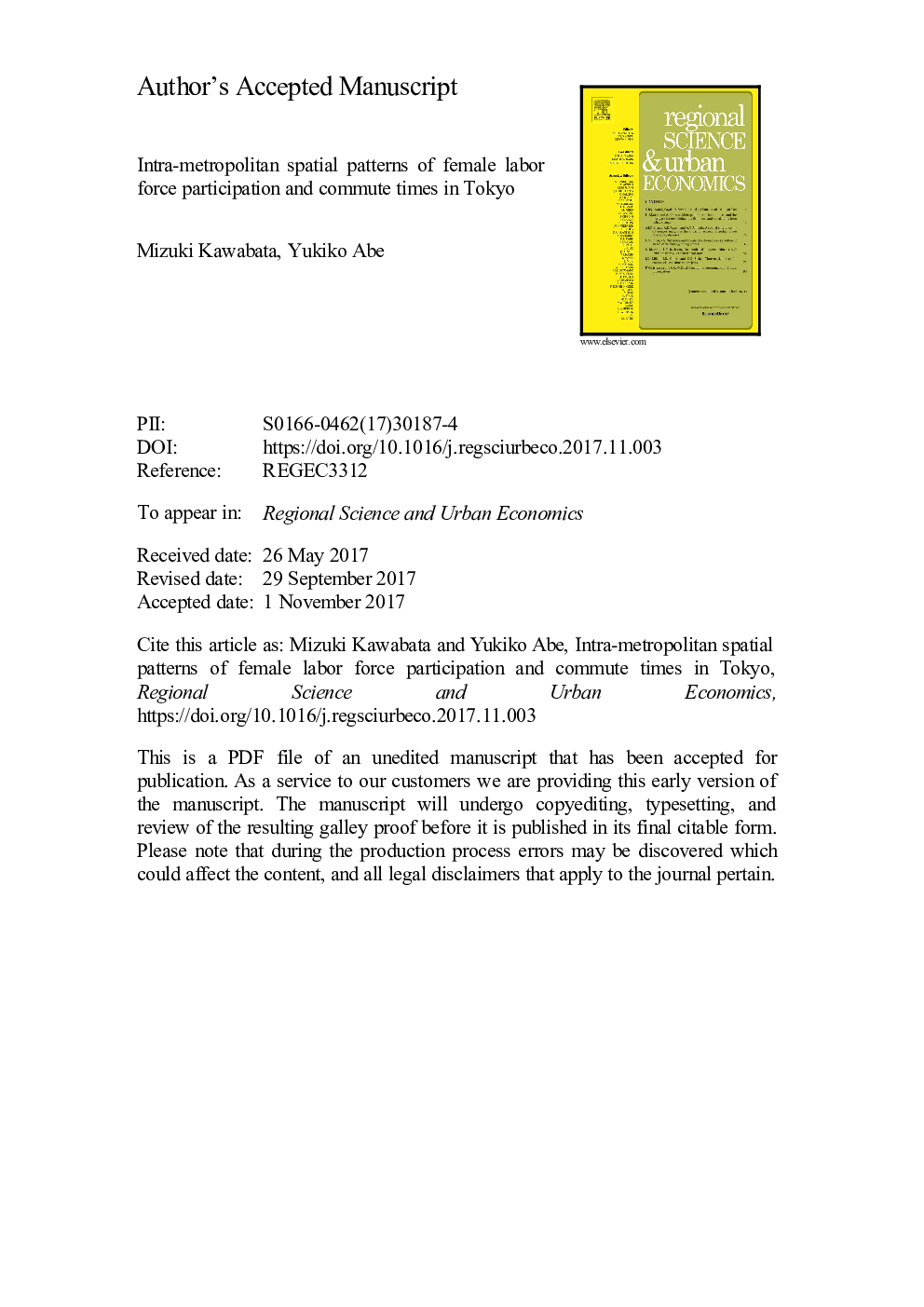| Article ID | Journal | Published Year | Pages | File Type |
|---|---|---|---|---|
| 7383765 | Regional Science and Urban Economics | 2018 | 47 Pages |
Abstract
We explore intra-metropolitan spatial patterns of female labor force participation, and examine how they relate to commute times in Tokyo. The spatial patterns differ markedly by marital status and the presence of children. For married mothers, the spatial clusters of low participation and regular employment rates are largely located in the inner suburbs, many of which overlap with the spatial clusters of long male commute times. The spatial regression results indicate that for married mothers, a longer commute time is significantly associated with lower participation and regular employment rates, while for unmarried and childless married women, these associations are mostly nonsignificant. Among married mothers, the magnitude of the negative associations is greater for college graduates than for those with a high school education or less, suggesting that highly educated mothers are especially sensitive to commute times. We argue that the spatial transportation constraint intensifies the household division of labor, resulting in unique patterns for married mothers.
Related Topics
Social Sciences and Humanities
Economics, Econometrics and Finance
Economics and Econometrics
Authors
Mizuki Kawabata, Yukiko Abe,
